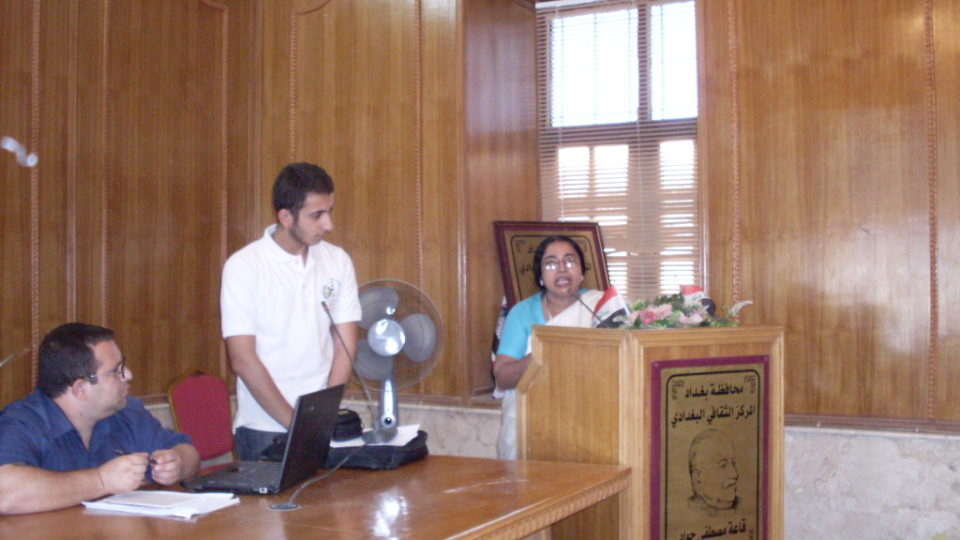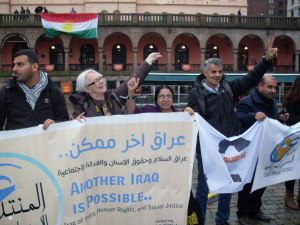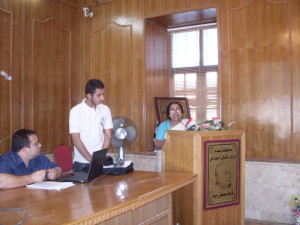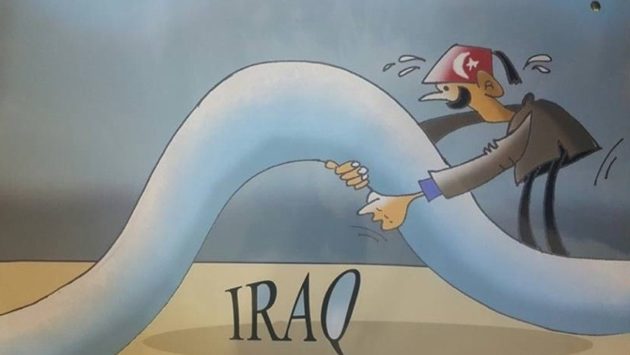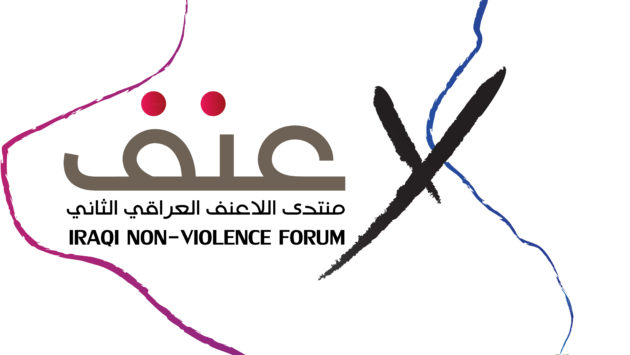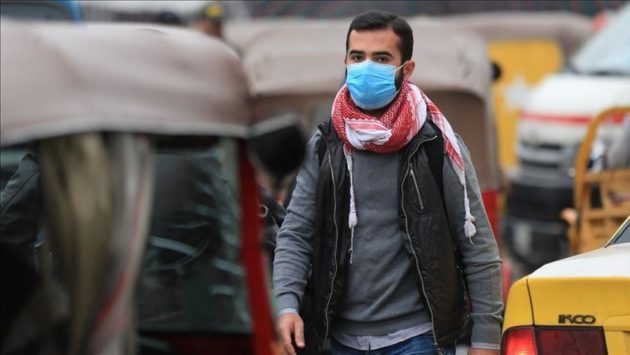Solidarity with the Iraqi Social Forum from Bangladesh
by Quazi Baby
Quazi Baby is Executive Director of the Participatory Development Action Program, which she founded in 1996 to work on human rights, women’s and children’s rights, and the right to housing and land. At the South Asian Social Forum, held in Dhaka, Bangladesh, in November of 2011, she organized two workshops with the support of 100 women grassroots activists and like-minded civil society organizations; one workshop focused on the human rights violation of ongoing slum evictions and the second promoted gender equality. In September of 2013, Quazi Baby attended the Iraqi Social Forum, in Baghdad, in solidarity with the Iraqi activists who had proclaimed, “Another Iraq is possible…. an Iraq of peace, human rights & social justice.”
I was so excited to attend the Iraqi Social Forum [ISF] because I had heard about the situation in Iraq, which was caused by the Administration of George W. Bush in 2003, but through the ISF I gained a clearer picture of the political situation in Iraq. The rule of law is weak, poverty and unemployment are increasing, and access to opportunities is unequal. After years of war and conflict, the infrastructure is poor; provision of water, sanitation, and electricity is not reliable. Iraqi citizens suffer from lack of services, including medical care and education. Through the ISF, Iraqi civil society raised its voice to demand reform of political, economic, social and cultural policies. I saw many parallels to needs we have in Bangladesh where political instability has led to many security challenges; people are killed, food is scarce, women face sexual harassment, and essential services are lacking. In both countries the people are suffering greatly because of disputes concerning political power.
When members of the ISF traveled to Oslo to attend the Norwegian Social Forum, in October of 2014, I was able to join them in solidarity once again. I particularly appreciated the initiatives of Iraqi women journalists, who share my goal of women’s empowerment. These journalists described how women are excluded from the management of media institutions. They do not report on major political issues and are generally absent from the editorial pages. Too often, women are limited to writing on what are considered ‘women’s issues’. One severe difficulty faced by women journalists is sexual harassment and violence in the workplace. In one poll, 68% of women journalists reported being harassed on the job. Despite these grave violations, 42% of them remained at work for fear of defamation, 24% because of financial need, and 36% for other reasons. Again I saw parallel with Bangladesh, where (based on a recent study of violence, conducted by Bangladesh Mohila Parishad) we learned that 939 women were raped in 2014. Of them, 174 were gang raped and 99 were killed after being raped. The number of women subjected to torture and death because of dowry was 431 and 236 respectively. Incidents of child marriage increased from 64 in 2013 to 93 in 2014. So, women suffer terribly and we need international solidarity and support in order to achieve women’s rights. We should work to promote CEDAW, the Convention on the Elimination of All Forms of Discrimination against Women. But after the Convention is adopted, we must follow up and advocate for women’s rights through campaigns, workshops, and education.
As a woman activist and a development worker, now that I have stood in solidarity with the ISF two times, I truly hope civil society in Iraq will be able to make their society violence free. I believe another Iraq will indeed be possible as groups form to carry out local dialogue, raise awareness, and then spread their message worldwide.

